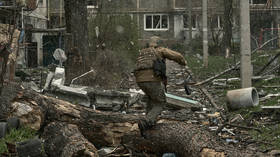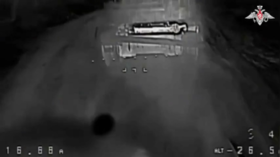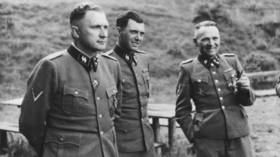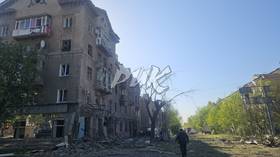Syria’s Assad in Moscow – senior diplomat

Bashar Assad and his family are in Moscow, senior Russian diplomat Mikhail Ulyanov said early Monday morning, confirming previous media reports that the former Syrian president has been granted asylum. The government in Damascus fell to militants on Sunday.
Ulyanov, who leads Moscow’s delegation to international organizations headquartered in Vienna, said the presence of the Assads in Moscow shows that “Russia does not betray its friends in difficult situations… unlike the US.”
On Sunday, Russian news agencies cited diplomatic sources as saying that Assad and his family members had arrived in Russia. They were reportedly granted asylum “on humanitarian grounds.”
Over the weekend, the Syrian Army stood down as Hayat Tahrir-al-Sham (HTS) jihadists and US-armed Free Syrian Army (FSA) militants advanced on Damascus and took over the Syrian capital. The anti-Assad forces declared him deposed and claimed control over the country’s government.
Assad agreed to step down following back-channel talks with unspecified armed groups and left the country, instructing officials to conduct “a peaceful transfer of power,” the Russian Foreign Ministry said on Sunday.
Russian military bases in Syria are on combat alert, but are not considered to be at serious risk, the statement added. Moscow sent troops to Syria in 2015 to help the government beat back Islamic State (IS, formerly ISIS) and other militant groups. The Russian military currently operates a naval facility in the port of Tartus and an air base near the city of Latakia.
The Russian government has urged the militants to refrain from violence and support a UN-backed effort for national reconciliation. Syria was plunged into years of violence in 2011, after US-backed armed groups tried to topple the Assad government. Jihadists and Islamists eventually emerged as dominant players among the anti-Assad groups, even as Washington and its allies claimed that ‘moderate rebels’ could ultimately prevail.
The lightning offensive that led to the fall of Damascus was launched late last month. It followed a period of relatively low-intensity fighting, which began with an uneasy truce brokered by Moscow and Ankara in 2020.














